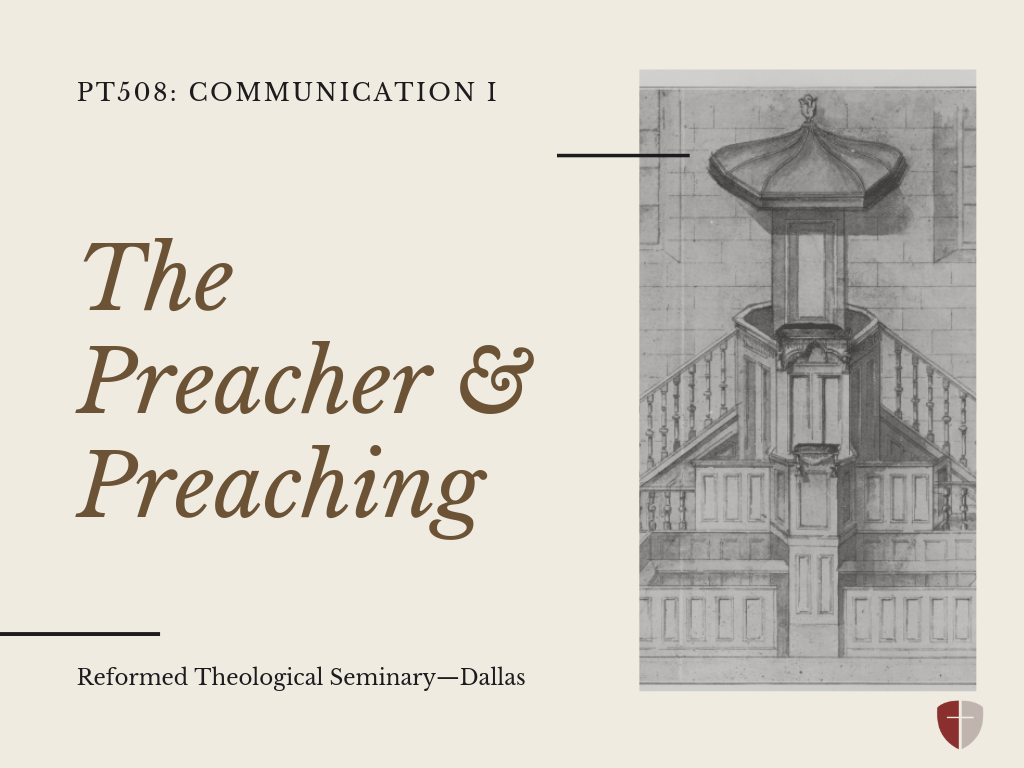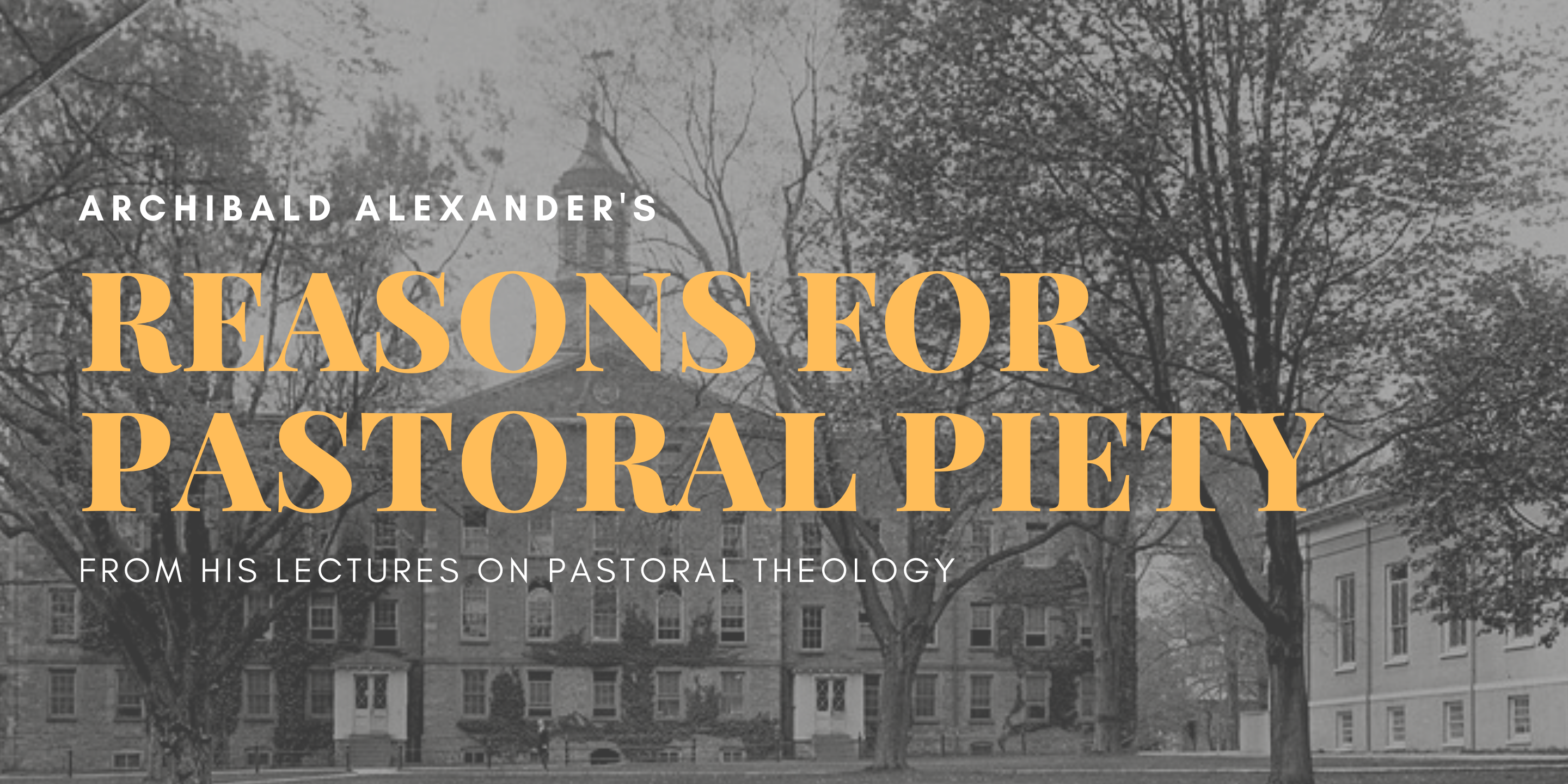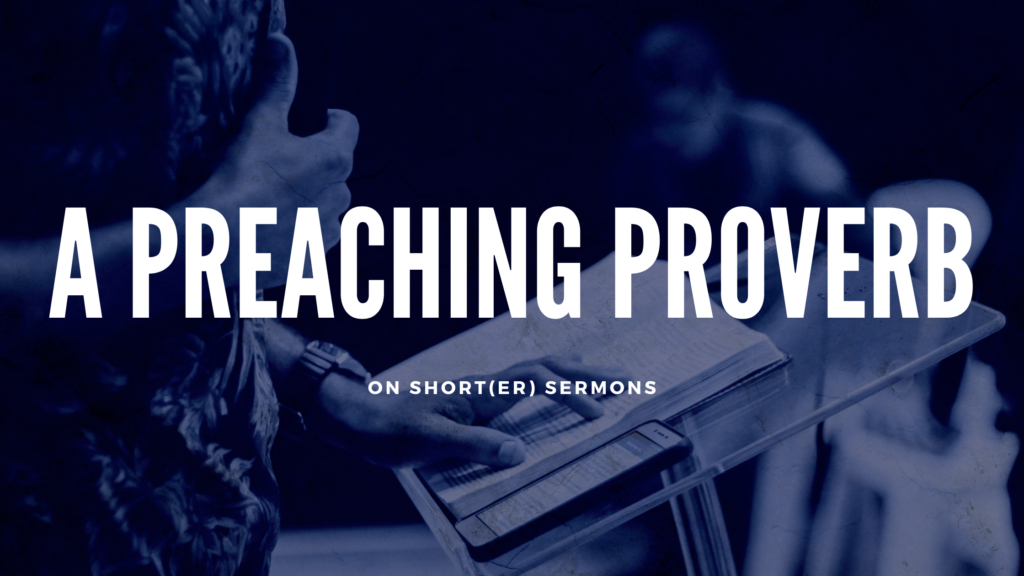
I once heard Carl Trueman say something like, “Many a great thirty-minute sermon turned into a poor fifty-minute sermon.” You surely know what he means. Maybe the sermon had an illustration or two that proved overly detailed. Perhaps the preacher meandered down three or four rhetorical rabbit holes. On the other hand, he may have had just too large a text. Or he could have had far too many unneeded cross-references.
A Maxim to Remember
In one of my preaching lectures at RTS, Dallas, I give students a few “Proverbs for Preaching.” They all seek to encourage future preachers about how it normally goes behind the pulpit and in churches. The one proverb that seems to stick best, probably because I have to repeat it most often, goes like this: the congregation will forgive you for a lot if your sermon is short; they’ll forgive you for little if your sermon is long.
I’ve seen this truth played out so many times that it seems indisputable. When a message goes long (length, of course, is contextual), and you’ll find most church members can only think of one thing: the sermon’s girth. However, if the sermon is shorter, people will remark on various points of use. Even if the sermon is poor, they’ll conclude, “At least it was short!” It’s always better to leave the congregation wanting more than wishing they heard less.
Common Culprits
My earliest pastoral experience happened in a movement that believed hour-long sermons were proof of one’s ability. I watched and listened to countless sixty-minute-or-more messages. Rarely, if ever, did they keep the attention of ordinary Christians. Even if the pastor could preach that long, extraneous content invariably bloated the sermon. What are the common homiletical culprits that expand sermons? Three things come to mind.
- Lengthy illustrations. To illustrate is virtuous, but to over-illustrate can be disastrous. I once had to review the sermons of a preacher who wrote a much-used homiletical textbook. I discovered that his typical sermon was 55% illustrative material, with the other 45% belonging to explanation and application. His pattern is not as unusual as you might expect. Any sermon like this is not a sermon that illustrates a passage but a text attached to illustrations. Such a sermon will always lack power, for the power is found in the Spirit working through the Word.
- Cross-reference commentary. Some strands of homiletics encourage pastors to spread cross-references throughout the sermon to underscore various points of teaching. Sometimes that’s good, but it is rarely necessary. Sermons full of biblical texts that aren’t the actual text at hand create messages that are more systematic-theological in nature than biblical-theological. Use other Scripture to explain any hard-to-understand phrases in the pericope, for sure. But most of your sermon passages will be clear enough. Which leads to the third culprit . . .
- Excessive explanation. Even in non-Christian contexts, the text’s meaning is often obvious. Pastors can easily spend many minutes explaining a passage whose meaning is clear. Scripture is perspicuous, after all. The true work is often not explaining what the passage means as much as it’s exhorting why the hearer must respond to it. I’m not belittling explanation. I’m only encouraging a sanctified instinct in preaching. The best preachers, on any given point, never say too much nor say too little.
Excise these culprits, and you’ll find a fifty-five-minute sermon shrinking automatically to a thirty-five-minute one (thirty to thirty-five minutes is probably best for most congregations).
More, Not Less
After explaining this to a friend years ago, he replied, “But our churches need more of the truth, not less!” I agreed—and still do. I only believe “more truth” doesn’t necessarily require longer sermons. Our churches don’t need longer sermons, but more sermons. But that’s a topic for a different day.
For now, let us all employ those twin towers of rhetoric—precision and concision—in preaching Christ. Doing that just might generate shorter sermons.

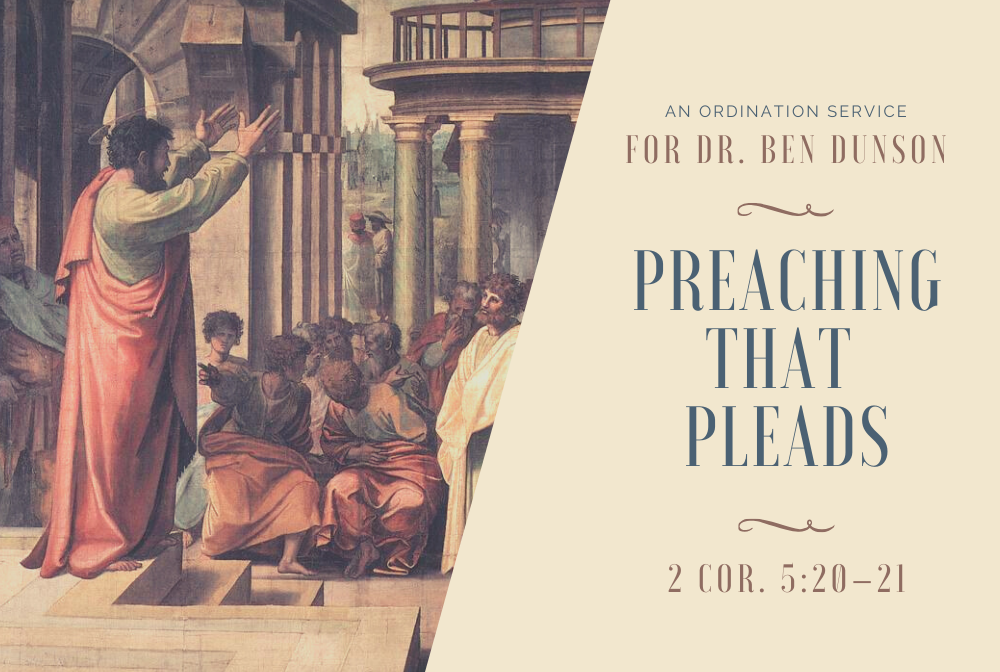


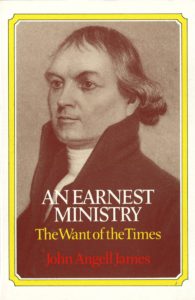 James’ heart burns for passion in the pulpit. He’s on point with what’s necessary for heralding Christ. He knows that it’s not until the preacher’s heart is right that his sermon will cut straight. Listen to what he says is “the essential qualification” for earnestness in the ministry:
James’ heart burns for passion in the pulpit. He’s on point with what’s necessary for heralding Christ. He knows that it’s not until the preacher’s heart is right that his sermon will cut straight. Listen to what he says is “the essential qualification” for earnestness in the ministry:
